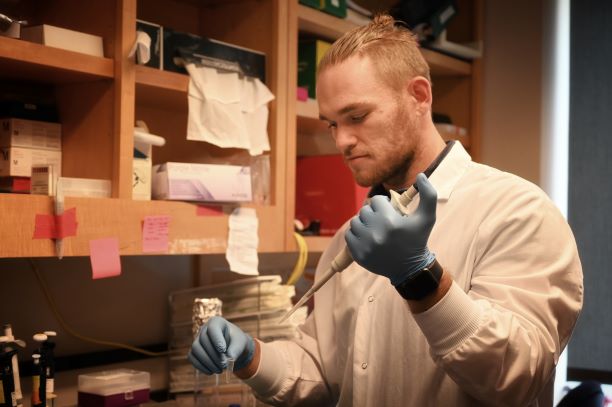Suggestions
Nathan Basisty
Tenure-Track Investigator at National Institute on Aging (NIA)
Nathan Basisty is a Tenure-Track Investigator at the National Institute on Aging (NIA), part of the National Institutes of Health (NIH).2 He is also an NIH Distinguished Scholar, a prestigious position he has held since July 2021.24
Career and Education
Basisty's academic journey began at the University of Washington, where he earned his Bachelor of Science in Biochemistry (2007-2009) and later his PhD in Pathology (2010-2015).2 His research career has focused on geroscience, proteomics, and bioinformatics, with a particular emphasis on the biology of aging and age-related diseases.2
After completing his PhD, Basisty spent nearly six years (November 2015 to July 2021) as a Postdoctoral Fellow at the Buck Institute for Research on Aging in Novato, California.2 During this time, he made significant contributions to the field of aging research, including playing a crucial role in creating a publicly-accessible database for developing senescence-based biomarkers of aging.1
Research Focus and Achievements
Basisty's research interests include:
- Aging and geroscience
- Mass spectrometry and proteomics
- Cellular senescence
- Post-translational modifications (PTMs)
- Biomarkers of aging
- Data-independent acquisition
- Protein turnover2
His work has been recognized with several awards, including:
- Aging Cell Best Paper Awards in 2014 and 2016
- Genetic Approaches to Aging Training Grant from the National Institute on Aging
- Glen-AFAR Scholarship for Research in the Biology of Aging
- Glenn Foundation Research Training Fellowship in the Biology of Aging
- Joseph A. Pignolo, Sr. Award in Aging Research2
Current Position and Impact
As the head of the Translational Geroproteomics Unit (TGU) at the NIA, Basisty continues to contribute to the field of aging research.3 His lab focuses on developing and applying novel proteomic workflows to study the biology of aging and related diseases.2 With over 30 publications to his name, Basisty has established himself as a prominent researcher in the field of geroscience.2
Basisty's work aims to improve human healthspan by preventing and treating age-related diseases through the development of new proteomic technologies and approaches.2 His research has the potential to significantly impact our understanding of aging and contribute to the development of interventions to promote healthy aging.
